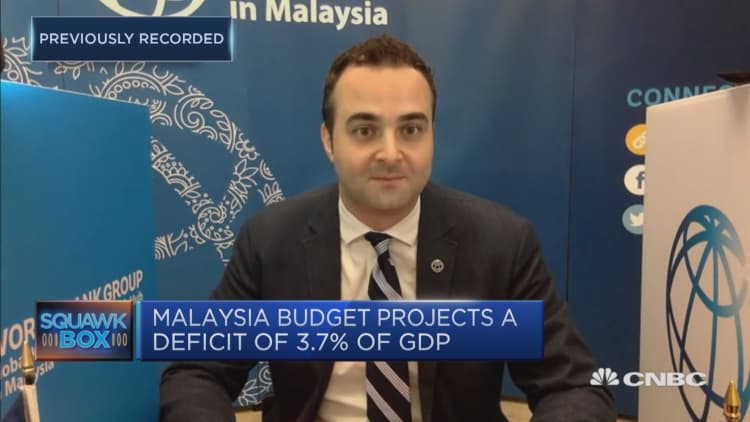Japanese bank Nomura has downgraded Malaysian shares, saying the new government's lack of "significant reform push" could lead to a worsening fiscal position and a possible slip in credit ratings.
Nomura moved its stance on Malaysian stocks from "neutral" to "underweight," it said in a Wednesday report. The call followed a similar downgrade by Singapore bank DBS, which in a Monday report also raised concerns about potential deterioration in the country's finances.

Malaysia had a change in government after a coalition led by Mahathir Mohamad — who was prime minister from 1981 to 2003 — unexpectedly defeated his former party and the long-ruling Barisan Nasional. Mahathir is now prime minister again, heading a new government whose fiscal management has come under the spotlight after alleged mishandling by the previous administration.
But, after more than six months in power, "there has not been a significant reform push" by the Mahathir-led government "which can potentially lead to expansionary economic activity," Nomura noted. In addition, earnings of listed companies have been disappointing and worse than regional peers, the bank said.
"On (the) reforms front, we were hoping that the government would deliver more progress in areas to improve government efficiency, reduce corruption and crony capitalism and potentially roll back or ease the government's presence in some areas to promote and create a level playing field with the private sector," the Japanese bank said in its report.
In addition, the fall in oil prices in recent months and "populist moves" such as the removal of goods and services tax are also bad for Malaysia's revenue, Nomura noted. The bank added that it expects the country's fiscal deficit to widen to 3.9 percent of gross domestic product in 2018 and 3.7 percent in 2019 — higher than the government's estimates of 3.7 percent and 3.4 percent for this year and last year, respectively.

"Our economists believe there is a high risk of fiscal slippage and the possibility of a sovereign ratings downgrade that could trigger more capital outflows," the bank said.
Ratings agency Moody's said on Tuesday it would consider downgrading Malaysia's sovereign rating if its financial prospects weaken or if its debt burden increases. Conversely, the agency said it would upgrade the rating if there's an increase in scope to bring down the country's deficit.
For now, Moody's said the outlook for Malaysia's A3 rating is "stable," which means a change in the near term is unlikely. The other two major ratings agencies, Fitch and Standard and Poor's, also hold a stable outlook on Malaysia's credit rating.


